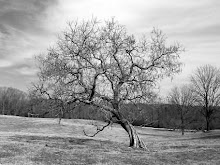White Noise is the quintessential postmodern novel of the 1980's, as one of my old professors noted upon gifting me the book. God bless DeLillo for reawakening my passion in literary theory, to which I am very anxious to return in the fall. I am thrilled to be reading his novel, as it is a vast cornucopia of intellectual musings that delight the very fiber of my being. Consider the following conversation between the narrator and his friend, Murray, on the contemplation of a tourist attraction known as the most-photographed barn in America:
"No one sees the barn," he said finally.
A long silence followed.
"Once you've seen the signs about the barn, it becomes impossible to see the barn."
He fell silent once more. People with cameras left the elevated site, replaced at once by others.
"We're not here to capture an image, we're here to maintain one. Every photograph reinforces the aura. Can you feel it, Jack? An accumulation of nameless energies."
There was an extended silence. The man in the booth sold postcards and slides.
"Being here is a kind of spiritual surrender. We see only what the others see. The thousands who were here in the past, those who will come in the future. We've agreed to be part of a collective perception. This literally colors our vision. A religious experience in a way, like all tourism."
Another silence ensued.
"They are taking pictures of taking pictures," he said.
He did not speak for a while. We listened to the incessant clicking of shutter release buttons, the rustling crank of levers that advanced the film.
"What was the barn like before it was photographed?" he said. "What did it look like, how was it different from other barns, how was it similar to other barns? We can't answer these questions because we've read the signs, seen the people snapping the pictures. We can't get outside the aura. We're part of the aura. We're here, we're now."
He seemed immensely pleased by this.
This passage might explain my skepticism at tourist attractions as being anything more than oversized kitsch for those uneager to experience the reality of different locations of the world. Traveling to India and refusing to spend a day in the poverty of the outer cities would be an example of the "religious experience" of tourism, worshipping at an altar of self-service and naivete. Note, also, the line "taking pictures of taking pictures." When we are told to hold some thing or some place in a higher regard, it does not take long before the "religious movement" of tourism (read, naivete) enhances this image and brands it upon that certain subject. I'm reminded of the concept of Utopia, and Louis Marin's book on Utopics comes to mind, and his essay on the map of Disneyland. If we are not told that Disneyland/World is the happiest place on earth, would it be? Would it's textual map read the same way?
We see what we are told to see. Shakespeare's Tempest also comes to mind, in regards to its presentation in traditional Elizabethean style. No one "sees" the island of the Tempest on the empty stage. As the audience, we are told what to see. An interesting concept, yes? This novel is full of such delights.
Wednesday, June 25, 2008
Subscribe to:
Post Comments (Atom)

No comments:
Post a Comment